Foreign News
From Sudan, the Perils of Bad Manners
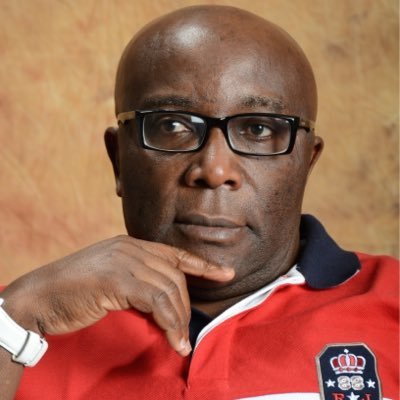
By Chidi Amuta
In a tragic sense, Sudan is somehow lucky. Its leading political figures, who also happen to be combatant generals, have not hidden their differences beneath a façade of mutual deceit. They have instead allowed their differences to blossom into an open bloody confrontation.
When an animosity between two rotten warlords blossoms into a shooting war, it opens the path to either a national meltdown or some kind of settlement. It is either the stronger force subdues the weaker and dictates the terms of a peaceful settlement or an equilibrium of forces is achieved in which case peace through negotiation becomes the only path open to all. In the next couple of weeks, Sudan may have to migrate from the present rage of clashing warlords to a full civil war, yet another in a series since after independence in 1956.
In a little over a week, Khartoum, the capital, has been transformed from a scraggy sprawling city in the sun into the battlefield of an undeclared civil war.
A contest for power supremacy between two corrupt ambitious generals has reopened the window for familiar military adventurism. The bloody rivalry between the two topmost senior military and political leaders has exploded into a real combat situation between factions of the Sudanese military and security forces. War planes, tanks and other weapons of war are being used freely as troops shoot into civilian population centres in Khartoum and beyond.
The raging confrontation is between the forces of General Abdul Fattah al-Burhan, Commander of the Sudanese Army, against those of General Mohamed Hamdan Dagalo, commander of the Rapid Support Force (RSF), a paramilitary security force. Both are semi autonomous forces competing for pre-eminence in the post al- Bashir era. Both men happen to be the topmost political figures, Head and Deputy respectively, in an interim semi military government presiding over the country after a series of shifting power arrangements after the toppling of Omar al Bashir in a 2019 coup led by both men.
Both men also staged a coup that wrested power from the revolutionary civilian coalition of civil society groups whose protests facilitated the ousting of al-Bashir’s three decades of Islamist authoritarianism.
The raging bloody confrontation has degenerated into a blood bath. Casualties have mounted and order has collapsed. Close to 300 deaths have been reported with over 3,500 injured. Most of the victims are innocent civilians and international workers according to independent journalists and observers.
The diplomatic community has been badly hit with United Nations offices and diplomats’ residences openly ransacked and looted. Disturbing cases of open harassment of female diplomats have been reported. Attempts by the international community to broker a cessation of hostilities has led to two failed ceasefires that collapsed within minutes of being announced.
The African Union (AU) has, as usual, been generous with condemnations of the violence with a basket of resolutions and threats, calling on both sides to come to the negotiating table. The United Nations has in turn joined in ritual condemnations of the fighting and its tragic fallouts. Meanwhile, the hostilities are assuming the character and dimensions of a full blown civil war.
The origins and drivers of the resurgent violence in Sudan go beyond a mere interpersonal power tussle between the two very corrupt and ambitious political and military overlords. It goes down to the strategic issues and factors that have always defined the country’s existence and recurrent crises. The primary conflict is that between a growing popular democratic wave and the long standing conservative Islamist power establishment that was the basis of the three decades long Omar al-Bashir hegemony. The pro- democracy forces led the 2018 street protests and revolution that helped topple Omar Al Bashir’s 30 year autocracy remain alive. They had started with agitations and street protests for greater accountability and a better standard of living. Pitted against this nascent populist democratic wave is the conservative Islamist power core of the Sudanese state. The current power structure led by both Generals Hamdani and Dagalo are thinly disguised factions of the al-Bashir regime.
It would be recalled that the popular uprising softened the al Bashir autocracy for toppling by the military. In turn, the two dueling generals staged a coup that upstaged the popular revolution, refusing to cede power to the leadership of the popular movement.
In many ways, a perennial power tussle between factions of the usurping military leaders has become the centerpiece of Sudan’s political life in recent times. It has consistently sidestepped the transition to popular democracy which remains the major issue in the post al-Bashir era. The compromise that legitimized the now crumbling semi military administration remains an attempt to forge a tenuous balance of ambitions between these two dominant forces on the one hand and the popular civil society coalition on the other.
Predictably, therefore, the appearance of uneasy political stability that would lead to the planned democratic elections later in two years was more an appearance than a reality. It has now burst into the bloody confrontation on display in and around Khartoum. It is unlikely that the two dueling generals and their followers will be willing to sheath their swords for as long as they still have forces and formations under their respective command and control. Already, deal to subsume the paramilitary Response Force under the larger umbrella of the Sudanese Armed Forces has fallen apart.
Strategically, Sudan’s peculiarities may escalate the present confrontation. The interplay of internal political interests may be overwhelmed by international conspiracies and interests occasioned by a convergence of Sudan’s strategic location and internal composition.
The United States has always seen Sudan as something of a precarious and suspicious rogue nation that needs to be constantly kept under watch because of its deep Islamic leanings and sporadic terrorist affinities. Sudan was for a long time a hiding place for jihadist terrorist and fundamentalist organizations associated with a long tradition of anti-Western activism.
These range from Yassir Arafat’s temporary refuge in Sudan in the days of the Black September organization. Similarly, al-Queda found refuge in Sudan in its formative years leading President Bill Clinton to send cruise missiles to bomb suspected terrorist havens in Sudan in the run up to the emergence of Osama Bin Laden.
As a result, the two opposing tendencies in the global Islamic world have sought and found allies within the Sudanese political leadership. At different times, Iran and Saudi Arabia as well as their client states and allies in the Middle East have courted different regimes in Sudan. Even now, major interests in the Middle East are tending to support either of the two warring generals. Egypt and Libya have assumed opposing alliances in the ongoing confrontation.
At the present time, the Russians have emerged to further complicate an already complex scenario. They have seen an opportunity in the establishment of a naval base in Sudan as an opportunity to counter long standing US and Western influence in Sudan. Similarly, the Saudi’s remain interested in exploiting the political fluidity in the Sudan to advance their interests. Others like Egypt, Libya and the UAE have of late weighed in in a running jostle for regional influence and pre eminence. Sudan’s neighbours like Egypt, Ethiopia, Eritrea, South Sudan and even smaller African authoritarian regimes all have an interest in the contest for supremacy among Sudan’s ambitious and politicized military leaders.
As it turns out, contrary to the prevalent notion that Sudan is merely a vast arid semi desert country, the country actually contains 10 percent of the arable and fertile land mass of Africa. In addition, it has an abundance of natural resources. Its oil reserves are the main attraction for an increasing Chinese presence in the country. It also has abundant gold and uranium resources in which both its immediate neighbours and major international players are deeply interested. Therefore, there is a convergence of international interest in the current instability in Sudan which may make the confrontation degenerate into a full-blown civil war with deeply interested external players intent on finding lasting foothold.
For the international community especially both the United Nations and the African Union, a quick resolution to the sudden violent eruption in Sudan is now imperative before the parties ossify into combatant footholds with friends abroad. Sudan should be more than a casual engagement. The international community will have to untangle the web of complex interests that are at play in the Sudanese crisis. The Sudan crisis calls for the highest display of diplomatic dexterity to sufficiently assuage the interests and reassure the combatants. A ceasefire leading to dialogue is the only way out. A quick resolution is imperative if the escalating humanitarian tragedy is not to worsen. Most importantly, the challenge in Sudan is first and foremost that of restoring the original sanctity of the civil society coalition that pressured al Bashir out of power.
This should be quickly followed by the restoration of civil authority through a democratic election and return to civil rule. Continuing to sweep the prodemocracy current under the carpet of warlords can only prolong the crisis and plunge Sudan into yet another avoidable civil war. Sudan is boiling from an urgent desire for genuine democracy, not the superficial contest of the huge ego of ambitious war mongers and power oligarchs.
For Nigeria, the evolving tragedy in Sudan has far-fetched repercussions. The United States initiative with its special military mission in AFRICOM will be in peril if Sudan crumbles in an all out civil war. Sudan holds a delicate geographical place in the international effort to contain the spread of jihadist terror in the Sahel.
Happily, the Nigerian political landscape has evolved beyond the point where politicised generals have privatized commands that can be used to hold the nation to ransom. It is perhaps a happier place to be in the hands of rough political entrepreneurs than be caught in a cross fire between armed warlords funded by the state.
Foreign News
Militants in Lebanon Launched 6 Suicide Drones at Israel, Causing Fire

Militants in Lebanon launched six unmanned aerial vehicles at northern Israel on Tuesday, causing fire and damage.
Only one of the drones was intercepted by the country’s Aerial Defense Array, the Israeli military said in a statement.
“One of the drones exploded near the community of Yiftah, close to the Israel-Lebanon border, sparking a fire,” he said.
The Israeli military added that several other drones caused light damage, with no causalities reported.
Israel’s state-owned Kan TV news reported that the drones were launched by Hezbollah, a Lebanese armed group and party, which had been fighting against Israel along the border since Oct. 7, 2023.
Lebanese military sources, who spoke anonymously, said that Israel’s F-15 warplanes intercepted, at very low altitudes, several drones that were heading from Lebanon to northern Israel.
Hezbollah said on Tuesday that its military wing, the Islamic Resistance, targeted Israeli officers and soldiers in the Yiftah barracks with drones while reporting casualties.
The drones targeted an Iron Dome platform in the Ramot Naftali Barracks, damaging it, he said.
The drones came after Israeli troops fired at Aalma El Chaab in southern Lebanon.
On Monday, Israeli warplanes stroked a Hezbollah military structure and infrastructure in the area of Mazraat Aaqmata in southern Lebanon.
Earlier Tuesday, Lebanese Labor Minister, Moustafa Bayram, said that Israeli attacks caused damage to around 3,000 business facilities in southern Lebanon, according to the National News Agency (NNA).
Bayram said he would contact the Arab Labor Organization and Arab member states as soon as the war ends to request a grant for people affected by Israeli attacks. (Xinhua/NAN)
Foreign News
Flames, Smoke Continue to Emerge from Massive Landfill in Delhi
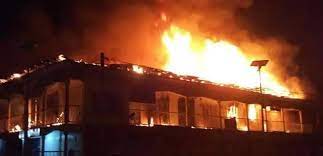
Flames and columns of thick smoke continued to emerge from a massive landfill in the Indian capital city of New Delhi on Monday, officials said.
Fire fighting operations were underway and fire-fighters were splashing water on the burning mounds of garbage.
The fire has continued at the colossal landfill site since it broke out on Sunday evening.
Meanwhile, toxic fumes emanating from the landfill have left residents in the neighbourhood to gasp for breath.
“There is a pungent smell all around. The smoke is poisonous and causes irritation in the eyes,’’ Dileep Pandey said.
Pandey is a local resident, living within the area.
“We are also facing difficulty in breathing.
’’While the cause of the fire remained undetermined, authorities have initiated legal proceedings against unidentified individuals in relation to the incident.
According to the Delhi Fire Services department, the landfill caught fire because of the methane produced in the heaps of waste.
Officials listed hot and dry weather conditions as the reason behind the blaze. (Xinhua/NAN)
Foreign News
Israeli Forces Vow Response to Iran’s Attack Despite Calls for Restraint

Israelis awaited word on how Prime Minister Benjamin Netanyahu would respond to Iran’s first-ever direct attack as international pressure for restraint grew amid fears of an escalation of conflict in the Middle East.
Netanyahu on Monday summoned his war cabinet for the second time in less than 24 hours to weigh a response to Iran’s massive weekend missile and drone attack, a government source said.
While the attack caused no deaths and little damage, thanks to the air defences and countermeasures of Israel and its allies, it has increased concerns that violence rooted in the Gaza war is spreading, and fears of open war between the long-time foes.
Israeli military chief of staff Herzi Halevi said on Monday that “this launch of so many missiles – cruise missiles and drones – into Israeli territory will be met with a response” but gave no details.
Iranian Deputy Foreign Minister Ali Bagheri Kani told state TV on Monday night that Tehran’s response to any Israeli retaliation would come in “a matter of seconds, as Iran will not wait for another 12 days to respond”.
But the prospect of Israeli retaliation has alarmed many Iranians already enduring economic pain and tighter social and political controls since protests in 2022-23.
Iran launched the attack in retaliation for an airstrike on its embassy compound in Damascus on April 1 attributed to Israel, and signalled that it did not seek further escalation.
U.S. President Joe Biden told Netanyahu at the weekend that the United States, which helped Israel blunt the Iranian attack, would not participate in an Israeli counter-strike.
Since the war in Gaza began in October, clashes have erupted between Israel and Iran-aligned groups based in Lebanon, Syria, Yemen, and Iraq.
Israel said four of its soldiers were wounded hundreds of metres inside Lebanese territory overnight, the first known Israeli ground penetration into Lebanon since the Gaza war erupted, although it has traded fire with the Lebanese Hezbollah militia.
“We’re on the edge of the cliff and we have to move away from it,” Josep Borrell, the European Union’s foreign affairs chief, told Spanish radio station Onda Cero.
French President Emmanuel Macron, German Chancellor Olaf Scholz and British Foreign Secretary David Cameron made similar appeals.
Washington and UN Secretary-General Antonio Guterres also have called for restraint.
White House national security spokesman John Kirby declined on Monday to say if Biden had urged Netanyahu in talks on Saturday night to exercise restraint in responding to Iran.
“We don’t want to see a war with Iran. We don’t want to see a regional conflict,” Kirby told a briefing, adding that it was for Israel to decide “whether and how they’ll respond”.
Foreign Minister Israel Katz said he was “leading a diplomatic attack” alongside Israel’s military response, writing to 32 countries to place sanctions on Iran’s missile programme and proscribe its Revolutionary Guards Corps as a terrorist organisation.
U.S. Treasury Secretary Janet Yellen said Iran’s actions threatened stability in the Middle East and could cause economic spillovers.
The U.S. would use sanctions, and work with allies, to keep disrupting Iran’s “malign and destabilising activity”, she added.
However, some analysts said the Biden administration was unlikely to seek to sharpen sanctions on Iran’s oil exports due to worries about boosting oil prices and angering top buyer China.
In a call between the Chinese and Iranian foreign ministers, China said it believed Iran could “handle the situation well and spare the region further turmoil” while safeguarding its sovereignty and dignity, according to Chinese state media.
Russia has refrained from publicly criticising its ally Iran but has also warned against further escalation.
Iran’s retaliatory attack, involving more than 300 missiles and drones, caused modest damage in Israel and wounded a 7-year-old girl.
Most missiles and drones were shot down by Israel’s Iron Dome defence system and with help from the U.S., Britain, France and Jordan.
In Gaza itself, where more than 33,000 Palestinians have been killed in the Israeli offensive according to Gaza health ministry figures, Iran’s action drew applause.
Israel began its campaign against Hamas, the Iranian-backed Palestinian militant group that runs Gaza, after Hamas attacked Israel on Oct. 7, killing 1,200 people and taking 253 hostages, by Israeli tallies.
British Prime Minister Rishi Sunak said the Group of Seven major democracies were working on a package of coordinated measures against Iran.
Italy, which holds the rotating G7 presidency, said it was open to new sanctions and suggested any new measures would target individuals.
Iran’s attack prompted at least a dozen airlines to cancel or reroute flights, with Europe’s aviation regulator still advising caution in using Israeli and Iranian airspace. (Reuters/NAN)

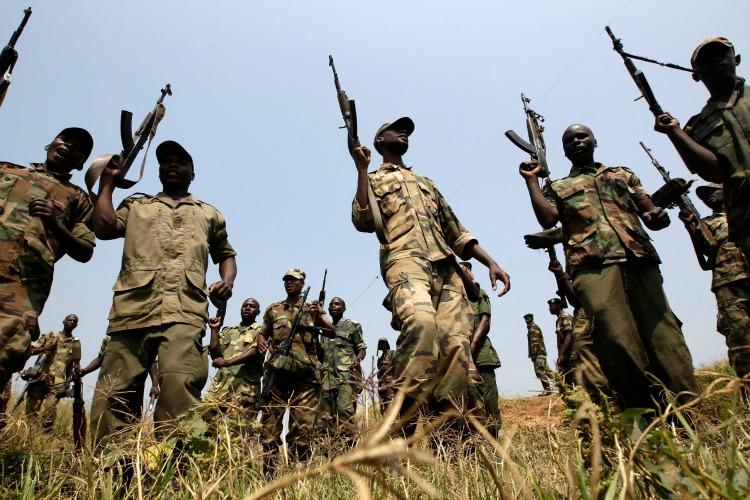
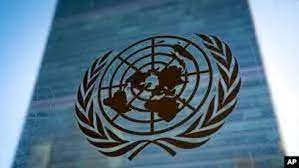

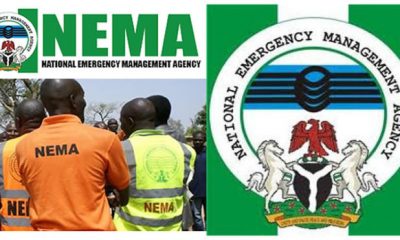

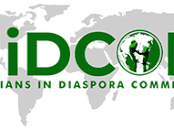

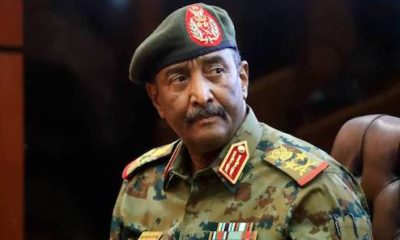

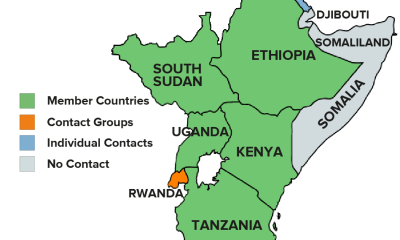




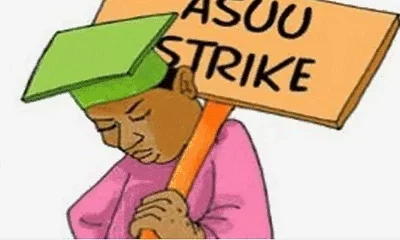



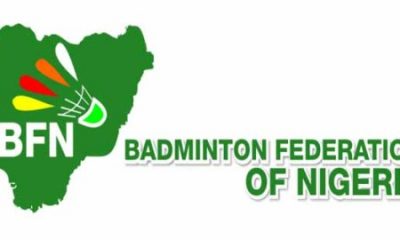











Pingback: Abduction: I-CSPJ Tasks I-GP on Release of Female Journalist in Rivers Daily Asset Online